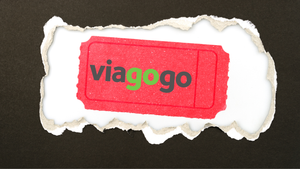The UK’s Advertising Standards Authority has upheld a complaint made against secondary ticketing website Viagogo over advertorial that it ran on the Political Currency podcast in which co-presenter Ed Balls declared that “over half the events listed on Viagogo had tickets selling below face value”. The ad industry regulator concluded that that was a misleading statement.
It comes as the secondary ticketing sector at large awaits to see how the UK government plans to implement the promised price cap on ticket resale. Meanwhile Viagogo’s latest efforts to expand its official partnerships with event organisers, this time via a deal with Manchester City football club, saw the company caught up in a high profile backlash from fans.
With the government set to make for profit ticket touting much harder in the UK - impacting on the commercial touts that account for a significant portion of sales on platforms like Viagogo - those platforms will be keen to enter into more official partnerships with promoters and clubs in entertainment and sport.
Viagogo’s deal with Man City will see hospitality tickets made directly available on its platform, with the option for fans to then resell those tickets if they can no longer attend.
The partnership was trumpeted by both the club and Viagogo, but heavily criticised by groups representing fans who staged a protest at a recent game. Thousands of fans stayed in the concourse at the club’s Etihad Stadium for nine minutes after kick off in protest at the fact Viagogo was Man City’s ninth official third-party ticketing partner - ticket resale already being more tightly regulated in football.
Although Man City fans have been protesting about various ticketing grievances in recent months, the bad reputation of sites like Viagogo added to the backlash. A statement for the Football Supporters Association noted, “plenty of clubs run their own in-house ticket resale platforms allowing supporters to pass on tickets to one another at face value – so why does any club need to engage a third party company whose only reason for existence is to push up prices and profit from matchgoers?”
But that bad reputation hasn’t stopped certain media, including NME and various national newspapers, and a notable politics podcast - from taking ad money from Viagogo to run advertorial for the resale site. Political Currency, co-presented by ex Labour minister Ed Balls and ex-Conservative minister George Osborne, included some Viagogo advertorial during an edition in April 2024.
After Balls had declared that “over half the events” listed on the often controversial ticket resale site “had tickets selling below face value”, Osbourne responded, “It sounds like Viagogo might be the solution next time I need cheaper tickets to the hottest shows in town”.
Those statements were challenged by the FanFair Alliance, the music industry’s campaign against for-profit ticket touting. That prompted the ASA to demand that Viagogo provide the data that justified the script they’d handed to Balls and Osbourne to read.
In response, Viagogo ran through its maths. It compared the price of touted tickets being sold on its platform, including its fees, with the cost of the same tickets on the primary ticketing platforms.
The cost of any one ticket on a primary platform was estimated by taking the face value of the ticket - ie the price listed on the ticket itself - and then adding 20% which, Viagogo argued, was on average what a buyer would pay in add-on fees.
Having compared prices in that way, it said that - for all the events listed on its platform - there was at least one ticket available for 53% of those events at a price lower than what the customer would probably pay on a primary platform.
The ASA had various issues with this methodology. First, Viagogo had Balls refer to the “face value” of tickets. The regulator said that most consumers would assume that meant the price listed on the ticket without booking fees, not least because that’s how Viagogo uses the term on its own website. And yet Viagogo’s bold statement was based on “face value” meaning face value plus 20%.
This was misleading, with the ASA stating, “because of the disparity between the ticket price and Viagogo’s definition of face value, we considered that the data provided was not relevant in supporting the claim as it would be understood by consumers”.
Balls’ script also said that there were “tickets” plural cheaper than face value on Viagogo, but under the resale site’s methodology events where a single ticket was available at a cheaper price would be captured in the 53%.
Plus Osbourne’s response that Viagogo was the solution if “I need cheaper tickets to the hottest shows in town” suggested that there are lots of tickets available at below face value, not one or two.
“One ticket per event was not a significant proportion of tickets”, the regulator concluded, and therefore Viagogo’s stats didn’t necessarily mean there was “a reasonable chance for consumers to purchase tickets below face value”.
With all that in mind, Viagogo has been told never to run this advertorial again. It’s a decision welcomed by the FanFair Alliance.
Campaign Manager Adam Webb says, “The idea that half the events listed on Viagogo have tickets selling below face value, or that Viagogo might be a solution for cheaper tickets, is – frankly – laughable. It is also blatantly misleading. Their entire business model is predicated on inflating ticket prices”.
Confirming he’s “very pleased the Political Currency podcast is no longer advocating this controversial website”, Webb adds, “I now hope that others – be they football clubs or music magazines – question the wisdom of aligning themselves with such a company”.

